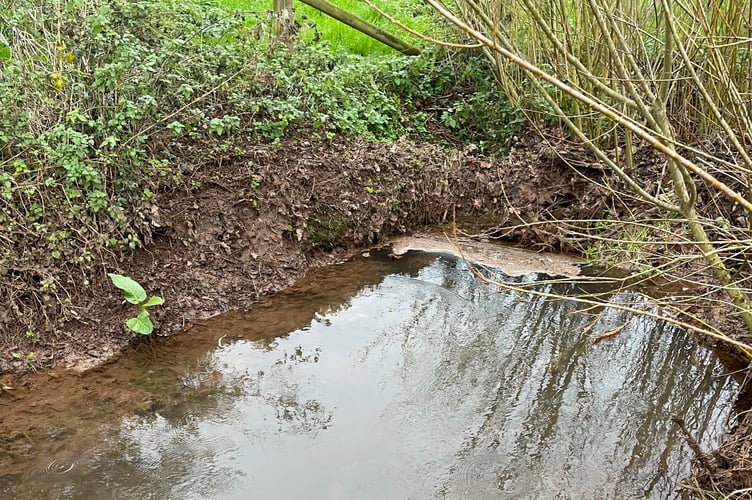SLURRY from Bycott Farm near Tiverton ran into a stream causing pollution for at least two months, a court heard yesterday.
The company, Bycott Farms Ltd, of Halberton, appeared before Exeter Magistrates where it admitted two charges relating to polluting a watercourse and one of disposal of controlled waste in a manner likely to cause environmental pollution or harm to human health.
It was fined a total of £4,300 and ordered to pay costs totalling £1,765, plus a victim surcharge of £190.
The court heard that investigating officers from the Environment Agency found that a ditch leading to a tributary of the Spratford stream was polluted.
They traced the pollution to a pipe discharging into the ditch and also dirty water flowing across a nearby field.
The officers met with farm owners, father and son Stephen and Tom Dibble. Stephen Dibble confirmed that water from the yards between the cattle sheds drained to the pipe seen by the officers.
Water contaminated with slurry was running into surface water drains connected with the pipe discharging to the stream.
Slurry was also running off the yard and mixing with effluent from an improperly constructed silage clamp and subsequently flowing several hundred metres across land into the water course.
Officers returned the following day, but found contaminated water was still running into the ditch, and further investigations two months later found polluted water flowing into the ditch.
Thick sewage fungus was visible in the watercourse for more than two kilometres downstream.
There was also evidence of burning of controlled waste at the farm, including plastics, paint tins, and a medical sharps bin.
During an interview with the Environment Agency, Stephen Dibble, director of the company, said the dairy herd had increased in size in recent years to more than 1,000 cows.
He did not think he needed to notify the Agency of increased silage clamp facilities, but accepted that slurry and silage effluent was running into the ditch from the clamp and the yard.
He also accepted that routine checks for problems with infrastructure that could cause pollution were not carried out and reluctantly agreed that waste was being burnt.
In handing down the sentence, District Judge Smith said £900,000 had since been spent on infrastructure by the company, as a result of this case.
Mischka Hewins for the Environment Agency said following the case: “This is an example of a farm causing pollution to our rivers. The farm owners failed to take action to stop the pollution even when it had been brought to their attention.
“We hope the fine issued by the court will serve as a warning to others to ensure their farms are not damaging the environment.”





Comments
This article has no comments yet. Be the first to leave a comment.